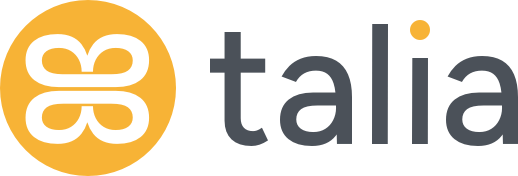Third Mission is an institutional mission of universities and research institutions, along with the traditional missions of teaching and research activities (ANVUR’s Manual for the Evaluation of the Third Mission).
ANVUR (Italian National Agency for the Evaluation of Universities and Research Institutes) defines third mission as “propensity of structures to be open towards the socio-economic context through the exploitation and knowledge transfer“.
Research and development activities are crucial to generate more employment, welfare and social cohesion.
The Cnr-Istituto di Linguistica Computazionale “Antonio Zampolli” promotes the advancement of scientific research activities and technology transfer to meet the needs of citizens and foster the competitiveness of the production system.
Innovation in the field of Computational Linguistics contributes to address crucial challenges for the strategic areas of society, in line with:
- the objectives of the UN Agenda 2030 for Sustainable Development;
- the national strategy Italia digitale 2026;
- the Artificial Intelligence Strategic Program 2022-2024 of the Italian Government.
Public engagement
CNR-ILC carries out scientific dissemination activities with educational, cultural and social development impact to domain experts as well as to the world of school and the general public.
Public events
- Celebration of 50 years of the Cnr-Istituto di Linguistica Computazionale “Antonio Zampolli”
- Areaperta – Talking about Science at CNR Pisa
- Radio Aula 40 – Il CNR di Pisa va in onda
- Bright-Night – European Researchers’ Night
- CLARIN Café
- Genoa Science Festival
- Didacta Italy Fair
- Internet Festival
- Salone Internazionale del Libro of Turin
Publications for external audience
- CNR-ILC Annual Report (2015, 2016, 2017)
- Brochures & CNR-ILC Flyers
- “La linguistica computazionale tra intelligenza artificiale e scienze umane e sociali: risultati scientifici e tecnologici, sfide aperte e ricadute applicative” (chap. 10 of the report “Le scienze umane, sociali e del patrimonio culturale nell’era delle grandi transizioni” of the Cnr-Dipartimento Scienze Umane e Sociali, Patrimonio Culturale )
- Contributions in the volume “Le scienze umane e sociali nel XXI secolo: comprendere e trasformare la società”, CNR Edizioni, DOI: 10.36134/DSU-CONFERENZA2023
Activities in collaboration with universities and training institutions
Dissemination of scientific research
- presentation of results in scientific publications
- video gallery
- social media
Technology transfer and research exploitation
CNR-ILC collaborates with companies through technological or consulting services, collaborative research activities, joint laboratories, participation in spin offs and Research and Innovation regional funded projects in collaboration with local companies.
For the exploitation of research results and technology transfer, the Institute has had and still has numerous collaborations with public authorities, SMEs and large Italian and international industries.
By collaborating with specialists from other disciplines, the Institute has developed innovative methods and technologies that can be applied in different fields, for example:
- Public Administration and Third Sector;
- Education and Training;
- Health;
- Cultural Heritage and Tourism.
Technology transfer involves skills acquired in multiple fields of Computational Linguistics, as well as linguistic resources and technologies that have been integrated into application products for the realisation of advanced capabilities for analysing and processing even large and evolving document bases.
Spin-off

Talia Srl, spin-off of the Cnr-Istituto di Linguistica Computazionale “Antonio Zampolli” and GruppoMETA, develops and delivers tools for text processing and knowledge extraction based on Natural Language Processing (NLP) and Artificial Intelligence (AI) techniques.
Talia offers specialised solutions and services in morphological analysis, syntactic analysis, name entity recognition, meaningful knowledge extraction, classification, clustering, ontology learning, ontology population and sentiment analysis in Saas (software as a service) mode.
Other activities
- participation in committees for the definition of standards and technical regulations
- organization and co-organization of national and international scientific events
- participation in national and international networks and associations
- editorial activities: scientific direction of journals

